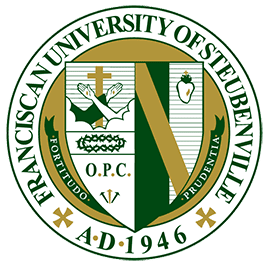Research Driven. Faith Inspired.
Teaching Centered.
The School of Natural and Applied Sciences at Franciscan University consists of programs in biology, biochemistry, chemistry, computer science, computer information science, mathematics, mechanical engineering, and software engineering. We also offer 3+2 and 2+2 engineering transfer programs with several universities for other fields of engineering, and certificates in bioinformatics and cybersecurity. Students are prepared for careers or graduate work in their chosen discipline through advanced courses of study and authentic real-world experience. All of Franciscan’s STEM degrees combine rigorous academics with the faithful Catholicism for which we are renowned.
In a quality science education, doing is learning and research is teaching. We take this reality to heart, providing multiple opportunities for our students to gain practical experience by participating in groundbreaking research and hands-on internships.
Whether you’re a biology major who aspires to be an orthopedic surgeon, a chemistry student intent on synthesizing drugs for a neglected disease, a mathematics major aiming to create mathematical models in finance, an engineering student eager to lead innovative projects in aerospace or national defense, or a computer science major who hopes to work in cybersecurity, we have an academic program complete with internship opportunities for every student.



































